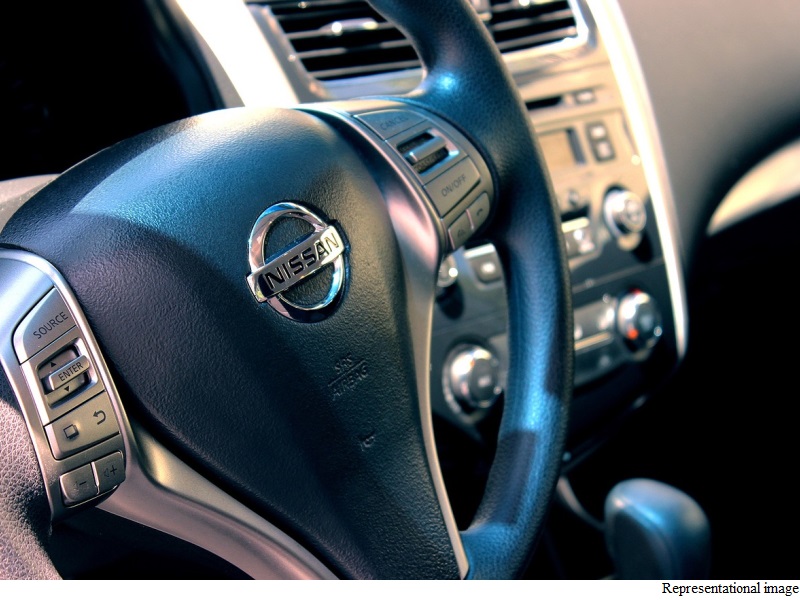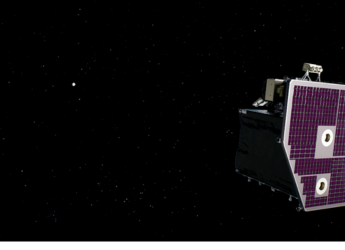- Home
- Others
- Others News
- Hacking Your Car Is Cool With Us, Says US Copyright Authority
Hacking Your Car Is Cool With Us, Says US Copyright Authority

"We all know that working on and tinkering with a modern car is a very different undertaking than it has been previously," Jalopnik.com wrote earlier this year. "It's no longer just about putting on a new manifold and dual carbs, modern cars involve many, many computers, and working on your car usually means working with and talking to the computers embedded in the car."
And because every car comes with a CPU - and many CPUs contain proprietary information - tooling around in the garage could also amount to a copyright violation. So said the Alliance of Automakers, a trade group that includes Ford and Toyota among many other companies, earlier this year as the US Copyright Office mulled exemptions to the Digital Millennium Copyright Act (DMCA).
"Many of the scores of electronic control systems embodied in today's motor vehicles are carefully calibrated to satisfy federal or state regulatory requirements with respect to vehicle safety, emissions control and fuel economy," the group wrote. "Much of the 'personalization' that proponents seek to achieve disturbs these calibrations and would have the effect of putting the vehicle into noncompliance with these legally binding requirements."
But on Tuesday, the Library of Congress, of the US Copyright Office is a part, issued exemptions to DMCA that pleased many auto enthusiasts. In a ruling that also freed those who wish to modify tablets and smart TVs, the LOC said, more or less, monkey away.
"I am glad they granted these exemptions," Sherwin Siy, vice president for legal affairs for Public Knowledge, an Internet freedom advocate, told ArsTechnica. "I am not glad it was necessary for them to do so in the first place."
The US Copyright Office's "Exemption to Prohibition on Circumvention of Copyright Protection Systems for Access Control Technologies" is not scintillating reading. In fact, it's harder to get through than "Finnegan's Wake," and runs 81 pages. Here's the relevant passage:
"Computer programs that are contained in and control the functioning of a motorized land vehicle such as a personal automobile, commercial motor vehicle or mechanized agricultural vehicle, except for computer programs primarily designed for the control of telematics or entertainment systems for such vehicle, when circumvention is a necessary step undertaken by the authorized owner of the vehicle to allow the diagnosis, repair or lawful modification of a vehicle function; and where such circumvention does not constitute a violation of applicable law, including without limitation regulations promulgated by the Department of Transportation or the Environmental Protection Agency; and provided, however, that such circumvention is initiated no earlier than 12 months after the effective date of this regulation."
Rough translation: You can mess with your car's software at will. Just not the A/V stuff or the black box. In a year, so the Environmental Protection Agency and other regulators can ready themselves
"Once the exemption is in place, tinkerers will have more freedom to alter their automobiles without fear of reprisal, at least due to copyright laws," Klint Finley wrote at Wired.
In an industry just shaken by Volkswagen's emissions scandal, this was significant. If people are allowed to get inside the software under the hood, the thinking went, no one will be able to fool millions of auto-buyers about how much gas their cars are guzzling. Transparency will lead to honesty.
"[The changes] could free up more researchers, particularly risk-averse researchers attached to universities, to explore the software that underpins the automotive industry and potentially discover flaws or intentional wrongdoing, such as the software Volkswagen used to subvert emissions tests," Finley wrote.
The EPA, however, advised against the change. Modifications, it said, could waste energy.
"EPA explained that vehicle modifications are often performed to increase engine power or boost fuel economy, but that these modifications increase vehicle emissions and thus violate the Clean Air Act," the Library of Congress pointed out in granting the exemption after a year-long delay designed to give EPA and the Department of Transportation to prepare for the change.
General Motors also criticized the decision.
"Sensitive vehicle data could be easily manipulated, altered, or distributed - undetected - if these changes are implemented," it said in a statement, as Reuters reported.
Those pleased or displeased by the exemptions may not be pleased or displeased for long. The exemptions are up for approval again in three years. This drawn-out process, some said, was in need of a hack itself.
"It's absurd that we have to spend so much time, every three years, filing and defending these petitions to the copyright office," Corynne McSherry, legal director of the Electronic Frontier Foundation, a nonprofit civil liberties advocate that petitioned for the exemptions, said in a statement. "Technologists, artists, and fans should not have to get permission from the government - and rely on the contradictory and often nonsensical rulings - before investigating whether their car is lying to them or using their phone however they want."
© 2015 The Washington Post
For details of the latest launches and news from Samsung, Xiaomi, Realme, OnePlus, Oppo and other companies at the Mobile World Congress in Barcelona, visit our MWC 2026 hub.
Related Stories
- Samsung Galaxy Unpacked 2026
- iPhone 17 Pro Max
- ChatGPT
- iOS 26
- Laptop Under 50000
- Smartwatch Under 10000
- Apple Vision Pro
- Oneplus 12
- OnePlus Nord CE 3 Lite 5G
- iPhone 13
- Xiaomi 14 Pro
- Oppo Find N3
- Tecno Spark Go (2023)
- Realme V30
- Best Phones Under 25000
- Samsung Galaxy S24 Series
- Cryptocurrency
- iQoo 12
- Samsung Galaxy S24 Ultra
- Giottus
- Samsung Galaxy Z Flip 5
- Apple 'Scary Fast'
- Housefull 5
- GoPro Hero 12 Black Review
- Invincible Season 2
- JioGlass
- HD Ready TV
- Latest Mobile Phones
- Compare Phones
- Vivo X300 FE
- Tecno Pop X
- Apple iPhone 17e
- AI+ Pulse 2
- Motorola Razr Fold
- Honor Magic V6
- Leica Leitzphone
- Samsung Galaxy S26+
- MacBook Neo
- MacBook Pro 16-Inch (M5 Max, 2026)
- Tecno Megapad 2
- Apple iPad Air 13-Inch (2026) Wi-Fi + Cellular
- Tecno Watch GT 1S
- Huawei Watch GT Runner 2
- Xiaomi QLED TV X Pro 75
- Haier H5E Series
- Asus ROG Ally
- Nintendo Switch Lite
- Haier 1.6 Ton 5 Star Inverter Split AC (HSU19G-MZAID5BN-INV)
- Haier 1.6 Ton 5 Star Inverter Split AC (HSU19G-MZAIM5BN-INV)

















